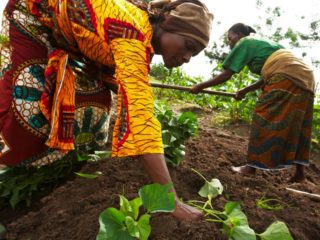American scientists create all-purpose vehicle for Nigerian farmers
A team of science students from Purdue
University in the US including a Nigerian, Olubunmi Babajide, has created and deployed
a three-wheel multipurpose utility vehicle that can help farmers in remote
areas to transport up to a 2,000 pound load in off-road conditions. The vehicle,
known as Ag Rover, was specially designed for Nigerian farmers and is also capable
of plowing fields for cultivation.
The students developed the project
to assist farmers who would otherwise find it difficult to gain access to the
kind of sophisticated farming tools available to farmers in more developed
regions of the world. The project later developed into a startup called Mobile
Agriculture Power Solutions (MAPS). Also, large, expensive tractors would require
service at some point in time, and in remote areas like the ones that are the
focus of MAPS, people qualified to do so simply don’t exist.
The primary feature of the Ag
Rover, however, is its ability to be manufactured by people on-site in Nigeria
with locally sourced parts, eliminating the issues of repair and fabrication
that have stifled other, similar efforts with proprietary machines.
To do this, the project has
developed a micro-factory or small facility where technicians can create the Ag
Rover with parts that are readily available in the local area. Currently, MAPS
is only focused on farmers in Nigeria, where the first fully-functional Ag
Rover saw deployment just last month.
However, the team will need more
help to accomplish its goals. Currently, they’re looking for anyone with
applicable technical skills or a desire to learn to join the team. For David
Wilson, involvement with the project began while he was a student at Purdue in
2010, long before it went by the name of MAPS.
Wilson said, “I came in as a
novice, but because of the flexibility, I began to work more and more on the
designs until I became a pretty integral member of the team.” He later went on
to co-found MAPS and lead the project to the point it’s at today.
Any students interested in making
their own contributions to the project can contact the Purdue Utility Project,
or PUP, at www.engineering.purdue.edu/PUP.




Comments
Post a Comment